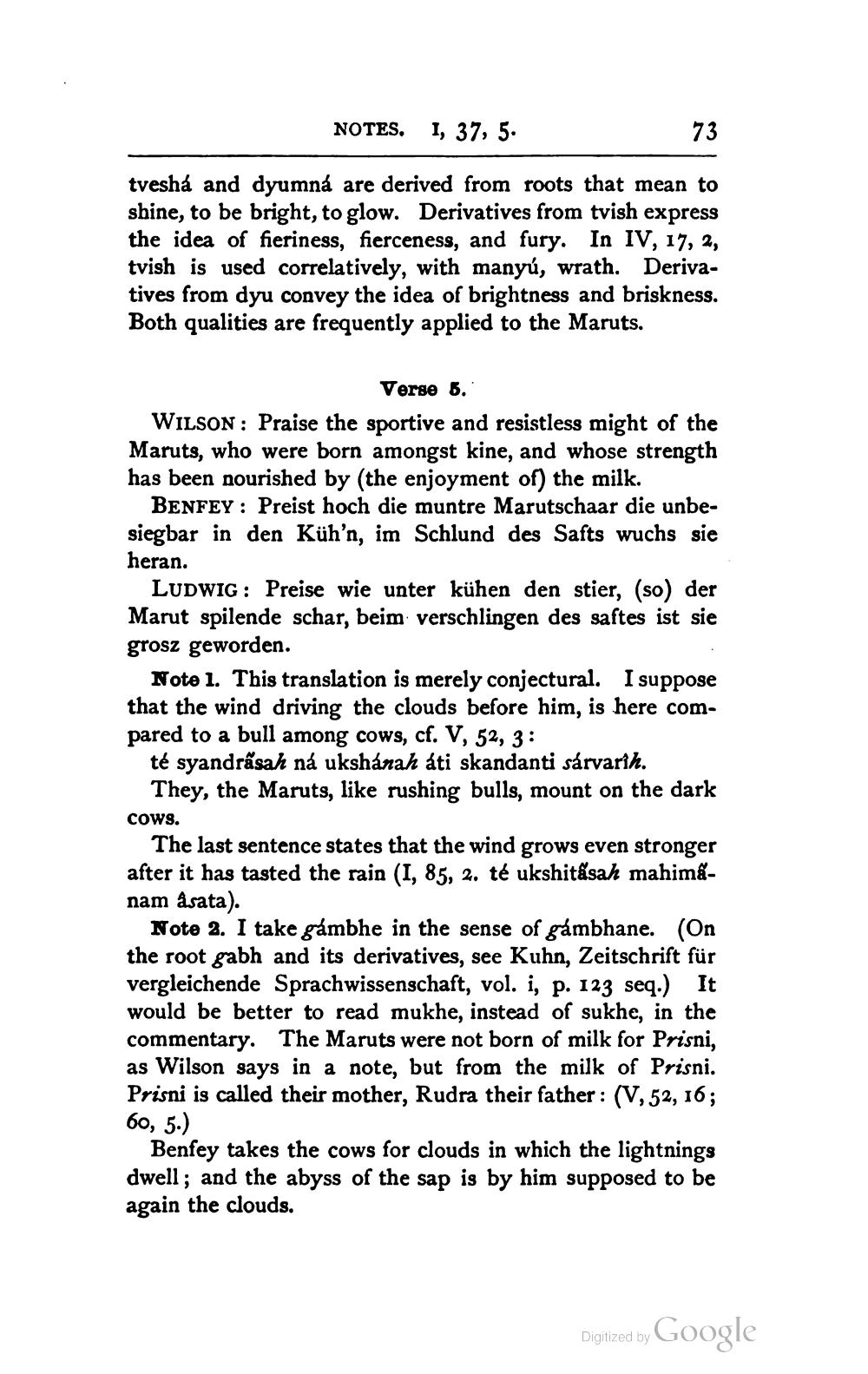________________
NOTES. I, 37, 5.
73
tvesha and dyumná are derived from roots that mean to shine, to be bright, to glow. Derivatives from tvish express the idea of fieriness, fierceness, and fury. In IV, 17, 2, tvish is used correlatively, with manyú, wrath. Derivatives from dyu convey the idea of brightness and briskness. Both qualities are frequently applied to the Maruts.
Verse 8. WILSON: Praise the sportive and resistless might of the Maruts, who were born amongst kine, and whose strength has been nourished by (the enjoyment of the milk.
BENFEY : Preist hoch die muntre Marutschaar die unbesiegbar in den Küh'n, im Schlund des Safts wuchs sie heran.
LUDWIG: Preise wie unter kühen den stier, (so) der Marut spilende schar, beim verschlingen des saftes ist sie grosz geworden.
Note 1. This translation is merely conjectural. I suppose that the wind driving the clouds before him, is here compared to a bull among cows, cf. V, 52, 3:
té syandrásah ná ukshanah áti skandanti sárvarih.
They, the Maruts, like rushing bulls, mount on the dark COWS.
The last sentence states that the wind grows even stronger after it has tasted the rain (1, 85, 2. té ukshitásah mahimanam asata).
Note 2. I take gámbhe in the sense of gámbhane. (On the root gabh and its derivatives, see Kuhn, Zeitschrift für vergleichende Sprachwissenschaft, vol. i, p. 123 seq.) It would be better to read mukhe, instead of sukhe, in the commentary. The Maruts were not born of milk for Prisni, as Wilson says in a note, but from the milk of Prisni. Prisni is called their mother, Rudra their father : (V, 52, 16; 60, 5.)
Benfey takes the cows for clouds in which the lightnings dwell; and the abyss of the sap is by him supposed to be again the clouds.
Digitized by
Digitized by Google




